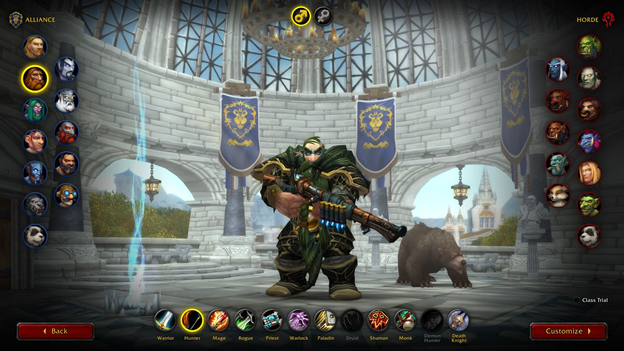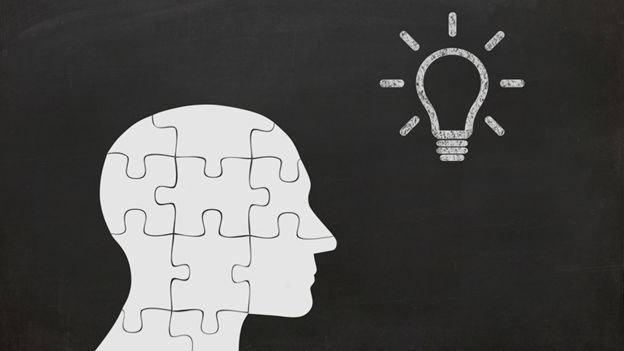How To Break A World of Warcraft Addiction

When it comes to video game addiction, not addressing World of Warcraft would be doing a huge disservice to those who battle with their addiction every day. World of Warcraft the infamous MMORPG has damaged potential and ruined the lives of many a player over the two decades it has been around. Hence in this article, we are going to run through the best ways to overcome your addiction to World of Warcraft.
Content
What Makes WoW So Addictive?

World of Warcraft or better known as WoW is a massively multiplayer online role-playing game in which players create an avatar and adventure through an immersive fantasy world, either with friends or alone. Over the years WoW has amassed millions of dedicated players but back in 2017, the game peaked at a whopping 46 million monthly active users.
Statistics say that only a small percentage of gamers suffer from video game addiction only based on the official diagnosed cases. But even a small percentage is a large number of video game addiction cases when applied to 46 million players.
So, in order to better overcome your addiction to World of Warcraft, it is important to understand the features of the game that make it so addictive.
Sense of Accomplishment
One main reason why games such as WoW are so addictive is their ability to create achievable goals for the player to work towards. Having a myriad of quests to complete, enemies to slay and loot to unlock is an integral part of what makes the game so fun and appealing. We, humans, love to achieve things. We have an innate desire to work towards goals and feel good when we accomplish them, hence the progress of society today.
However, video games tend to hijack this desire to accomplish things. Gaming addicts settle for instant gratification that they can receive on a moment’s notice like making some quick gold or levelling up their character. Sadly this shunts a lot of people’s drive to accomplish things outside of gaming as they seem too long-winded and not as rewarding. Quest’s in WoW walk that fine line between a challenge and reasonably doable. Thus we can feel good about doing it while not being pushed past the point of too much frustration.
World of Warcraft developers are always putting out new expansions to get stuck into, so the challenges are forever going. With the bar constantly being raised for players to catch up to it conditions them into an infinite loop of setting goals to work towards within the game.
It’s important that if we are to overcome an addiction to World of Warcraft we get our sense of accomplishment from other aspects of life and not just gaming
Social Interaction
The “massively multiplayer” part of WoW is a component that heavily contributes to the development of an addiction. World of Warcraft emerged at the beginning of the online gaming boom in the early 2000s when games were offering the ability to connect and play with friends over the internet. This was revolutionary of course and is still one of the main reasons people love MMORPGs
WoW allows friends to team up and battle alongside each other through difficult raids, bosses and even other PVP events. The interconnectivity of online gaming such as this has led to great fun and enjoyable moments like memes such as “Leroy Jenkins” and even collaboration with the hit cartoon “South Park”. However, in many instances of video game addiction, online interaction through gaming begins to take precedence over real-life ones.
Playing and talking over communication apps like Discord, gives gamers an additional layer of anonymity and safety when talking with friends. Interacting through video games saves individuals from having to experience the repercussions of interacting face to face. This can be extremely appealing to those who are shy or suffer from social anxiety.
Eventually, gamers can begin to neglect real-life relationships with friends and family in order to continue playing WoW with fellow guild members they have so much in common with. Ultimately this leads to isolation and damage to personal relationships which can further exacerbate a person’s addiction.
Esteem, Power and Value
Studies carried out on the history of video game addiction found that a common cognitive belief that was consistent amongst video game addicts was the idea that they will gain power and status through progressing within the game. This is particularly prevalent in MMORPGs as you are constantly surrounded by other players. Here they can brandish their rarest items as a sign of wealth, skill and dedication to the game.
In popular MMORPGs such as Runescape, it’s a regular occurrence to see players dressed in expensive and rare cosmetic items at Lumbridge Castle, an area highly populated with low-level players. This idea almost embodies what displaying wealth is like in the real world. Sadly, players are highly motivated by this cognition. Whether it is to feel powerful and important in some respect or the desire to accomplish the most difficult tasks in WoW it is an unhealthy relationship with the game.
Unhealthy cognitions are at the root of all behavioural addictions and hence why it is entirely possible to treat your addiction. In order to do so, we need to change our relationship with the negative thoughts that lead to playing video games. One of the best ways to do this is through cognitive behavioural therapy also known as CBT but we will come onto this later on.
Escapism
Another reason why WoW is so addictive is its ability to immerse players in a fantasy world. Difficult situations in real life can be huge obstacles that people struggle with. Things like bullying, abusive relationships, mental health problems and financial struggles just to name a few, can make people want to run away from it all. Video games such as WoW can offer an alternative world where they can relax and take control of a character not bound by any of their existing problems.
MMORPGs offer an escape into a virtual world where they decide what they do from moment to moment, who and how they interact with other players and explore the vastness of worlds built around their wildest dreams. When players are immersed in these experiences they are not concerned about real life and can take a moment to distract themselves from their troubles.
However, this is not a healthy vice in order to escape from problems as it causes experiential avoidance. People become dependent on video games to run from their problems so it leads to excessive use and feelings of overwhelm when confronted by their issues. For this reason, video games have been linked to anxiety as those who suffer from constant worrying thoughts use video games as a means of distracting themselves from them. As a result, this exacerbates the feelings of anxiety without video games.
Symptoms of WoW Addiction

Most people suffering from an addiction to WoW don’t realise that they have an addiction until the impacts on their life have been detrimental. In order to be more vigilant and seek help when necessary here are some of the most common symptoms of a World of Warcraft Addiction:
- Damage to personal and professional relationships
- Loss of interest in other activities except playing WoW
- Obsessive thinking about playing WoW
- Poor performance in school or work
- Sleep problems and poor sleep quality
- Lying to others to conceal gaming habits
- Neglecting important responsibilities to play WoW
- Repetitive strain injuries like tennis elbow and carpal tunnel
- Lack of energy and motivation
- Decline in mental health and general mood
A lot of these symptoms are indicative of video game addiction in general as they fall into the World Health Organisations’ criteria of addiction. The criteria they use to diagnose video game addiction explains that there has to be “significant impairment in personal, family, social, educational, occupational or other important areas of functioning” over a minimum of 12 months. Thus if you or anyone close to you has been suffering from any of the previously mentioned symptoms then it might be time to get the treatment you deserve.
Furthermore, many of the symptoms of video game addiction are consistent with certain mental health conditions such as depression, anxiety, OCD and ADHD. Research has shown that those who suffer from these comorbid conditions are at higher risk of developing a video game addiction. Therefore we always recommend that our members seek out the opinion of a local medical professional in order to rule out any of these conditions contributing to your addiction.
WoW Addiction Story

For the benefit of those whose addiction has not caused them any problems yet, we thought that it could be of some use to see the negative effects, WoW addiction can have on people’s lives if left untreated.
One instance of an English Professor Ryan van Cleave was on the verge of losing everything he had. His family, his job and even his own life. During the height of his addiction, Ryan would play up to 60 hours a week. He would capitalise on every small opportunity he got to play WoW; before teaching class, late at night or even skipping out on family dinners and having ready meals at his computer.
Ryan suffered from a severe desire for escape as he went on to explain that living inside the world that WoW had created was preferable to the drudgery of real life. In addition to this Ryan also displayed the cognition and belief that in-game accomplishments made him powerful. He stated “I have ultimate control and can do what I want with few real repercussions” Ryan began to feel helpless and powerless at the first sign of any adversity in real life which would exacerbate his desire to escape into WoW.
It wasn’t long before it began to affect his professional life as colleagues found him to be antisocial and not pleasant to be around. Ultimately resulting in his contract not being renewed and losing his job. Ryan later acquired another job lecturing at a different university with shorter hours which only meant more time for World of Warcraft.
A short while later Ryan would hit rock bottom and found himself standing at the top of the Arlington Memorial Bridge contemplating taking his own life. It was only at this moment did he evaluate his life. Contemplating the neglect he has had for his family and all other aspects of his life due to his addiction he realised that a change is in order.
That night Ryan returned home and deleted WoW off of his computer never to play it again. His withdrawal symptoms over the first couple of weeks were headaches and sweating similar to withdrawal from substance addiction. Ultimately Ryan turned his life around, publishing a book on his addiction and moving into a quiet home in the suburbs with his family.
Despite Ryans’ relationship with video games he does not hold a grudge and went on to explain that video games are not evil. They are fine so long as they are part of a balanced life. In other words, gaming is fine if we play in moderation.
WoW Addiction Treatments

WoW, and other video game addictions are all behavioural addictions. In order to overcome these, we will need to make interventions in various points of our life if we wish to have a healthy and sustainable change. For starters, we need to allow our brains time to recover from the overstimulation WoW addiction has caused and that brings us onto our first option.
Detox From Video Games
Taking a detox from video games simply means no video games for an extended period of time. This also refers to consuming other video game related content like YouTube videos and Twitch streams as they offer a small level of stimulation and temptation that will hinder you along your journey. We recommend that those addicted, take 90 days away from gaming in order to allow their brains to recover from the overstimulation excessive gaming has caused. Behavioural addictions result in chemical changes in the brain, which can be undone if we cut out the behaviour and give ourselves the chance to readjust.
Secondly, many addicts, like our story of Ryan, don’t really get the chance to evaluate their lives and gain some perspective in the midst of their addiction. Hence taking some well needed time away from WoW will help to get in touch with what life was like without video games and the other things we used to enjoy.
One way we can help to get this started is by telling our closest family and friends about our detox. Creating a support network of those closest to you can be extremely beneficial in overcoming addiction as it can often feel like a lonely journey. Also, modern psychology tells us that when we inform others we care about our important decisions and commitments, it significantly increases our motivation and chances of following through. By being held accountable by those who care, we are more likely to stay committed even when we feel like giving up.
Find Alternative Hobbies
Understandably, when we take a detox from video games we are going to be left with copious amounts of free time which most recovering addicts struggle to occupy. When someone recovering from video game addiction get’s bored their immediate response was to play video games. Thus being presented with more time than they know what to do with, the temptation is always looming.
Our solution is to find alternative activities to gaming that satisfies us in the same ways that gaming used to. Playing video games is a unique activity in the sense that it can provide so many different forms of stimulation all in one place. Therefore we have to find multiple different healthy alternatives.
We recommend finding an activity where you can feel mental stimulation and a challenge, a different activity where we get social stimulation and finally an activity to relax with. For a mental challenge and measurable growth, why not try learning an instrument or another language? To gain social stimulation why not join a martial arts club, team sports or attend a dance class? Here you can find like-minded individuals with similar interests. Lastly, for some relaxation activities why not try something low energy like reading, drawing or graphic design?
If you’d like some more examples of healthy alternative activities to gaming take a look at our article.
Just as a final note. Building new passions with different hobbies takes time. Trying something once and giving up is depriving yourself of the opportunity to find a new interest. So be patient and keep going.
CBT For Video Game Addiction
As we mentioned earlier video game addiction is rooted in our negative thoughts so in order to overcome them we have to apply CBT techniques. CBT is used to treat many different conditions such as depression, OCD, anxiety, substance addictions and of course, behavioural addictions.
So how does CBT work? CBT is usually delivered through in-person therapy or via guided lessons that therapists can prescribe. A lot of the time this will come in the form of meditations, thought exercises and information about the person’s addictions to help them rationalise the way they are feeling. After all, knowledge is power.
Therapists will set exercises to practice at home to overcome the specific parts of your addiction that you are struggling with. For instance feelings of “losing the value of your account by not playing” can be altered using exercises such as journaling or meditations.
There is usually a stigma behind meditations, as many often envision a person sitting cross-legged on a yoga mat humming. However, this is a common misconception. In the context of CBT, meditations are a way for us to engage with our thoughts. Meditation helps to relax us and apply the techniques we have been taught to help alter our negative thoughts.
One CBT exercise we’d like you to try is cognitive restructuring. Gaming addiction comes with a lot of inaccurate thoughts known as distortions. The example we saw earlier was the idea that you have to “gain power in-game in order to be respected” This is a distortion. While it may grant you in-game esteem from your peers it does not inherently improve your self-worth.
Let’s say that your account is hacked or banned. Well, this usually leads to negative thoughts about oneself and outrage at others’ responsible as opposed to accepting that their beliefs were faulty, to begin with.
To get started take a look at this cognitive restructuring worksheet and work through it at your own pace. Try to think of as many thoughts, rationalisations or distortions that lead to you playing video games, and get started on restructuring them!
If you feel like you’ve been playing too much World of Warcraft and want to cut down, The Mindful Gamer is always here to help.








